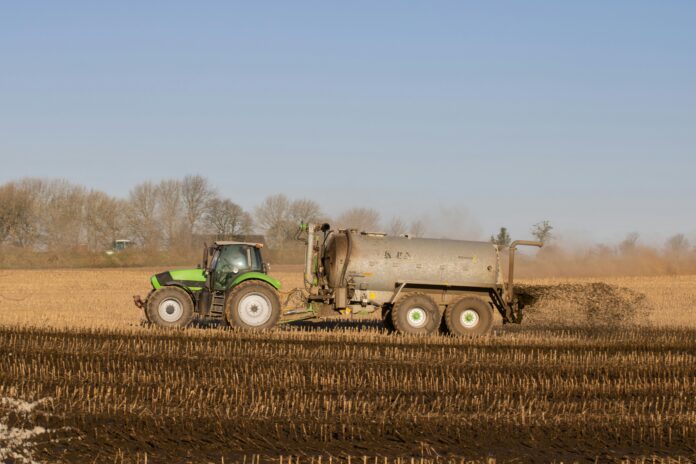
JUST 27 per cent of required farm slurry inspections were completed by Limerick City and County Council last year.
An investigation by The Journal Investigates found the rate of inspections to be one of the lowest of any local authority in Ireland.
Limerick was joined by more than half of local authorities across the country in failing to meet farm inspection targets for slurry spreading and management in 2024.
The Environmental Protection Agency (EPA) set targets for local authorities in 2024 with the aim of increasing the number of inspections carried out on farms and protecting water bodies from agricultural run-off.
Last year was the first time such targets were set by the EPA, as part of the National Agricultural Inspection Programme.
The programme aims to protect water quality from the effects of agricultural activity and allocates a specified number of inspections to each local authority.
Though slurry – an organic manure made of livestock animal refuse – is essential to farm productivity, it contributes significantly to ammonia, nitrous oxide, and methane emissions. Irresponsible spreading of slurry has also led to considerable water pollution and biodiversity loss.
A national target of 3,346 farm inspections was set by the EPA for 2024, divided across 28 local authorities.
However, just 2,810 inspections were completed last year, leaving councils almost 20 per cent short of the target.
Limerick City and County Council opened and completed just 44 of the 161 farm inspections required by EPA targets in 2024.
In previous years, the Council completed a far greater number of farm inspections, including 404 in 2023 and 650 in 2022.
A spokesperson for Limerick City and County Council told The Journal Investigates the reason for the drop in the number of farm inspections last year was due to the local authority “concentrating on closing out open files and ensuring that these farmers are compliant with the GAP Regulations”.
In addition to the 44 new inspections last year, “159 existing open file farm inspections were undertaken”, the Council spokesperson said.
A total of 15 local authorities failed to hit the targets set for them by the EPA last year.
Seven councils, including Limerick City and County Council, conducted less than 50 per cent of their target inspections.
A number of local authorities, including Cork, Monaghan, and Carlow County Councils, inspected more farms than they were required to.
Sinéad O’Brien, CEO of the Sustainable Water Network (SWAN) – an umbrella network of 25 environmental NGOs – told The Journal Investigates that the fact that more than half missed their targets was “extremely worrying”.
She added that these inspections served as a pillar of the Nitrates Action Programme, a government initiative to prevent water pollution from agricultural sources.
“It’s concerning”, she said, that “local authorities aren’t carrying out their duties” in relation to the required farm inspections.
Of the fall in the number of inspections on Shannonside, Sinéad O’Brien noted “quite intensive agriculture in Limerick, and it’s very important that they keep on top of their inspections”.
The number of inspections required by the EPA has increased for 2025, with Limerick allocated a target of 194 inspections (up from 161 in 2024).
A spokesperson for Limerick City and County Council said that additional scientists were being hired to concentrate on achieving the new inspection targets moving forward.
Asked whether there would be any sanctions against local authorities who failed to meet their targets, a spokesperson for the EPA did not specifically respond.
However, they did say that local authority performance of their environmental responsibilities, including these agricultural inspections, is monitored by the agency through “ongoing compliance meetings and audits”.
Ms O’Brien said that sanctions against local authorities in the first year of the inspection programme “wouldn’t be my first priority”, adding that a lot of pressure had been placed on councils, particularly around staffing resources.
However, she said that gradual improvements “isn’t good enough” and called on the EPA to enforce a “zero tolerance policy” from 2025.
“This has gone on for long enough. Agriculture is the main source of water pollution in Ireland, and they need to show willingness and start doing something to fix it,” she added.
“The very least they can do is have an effective inspection enforcement program.”
by Conor O’Carroll
This story was originally published by The Journal Investigates. Find out more at thejournal.ie/investigates.



